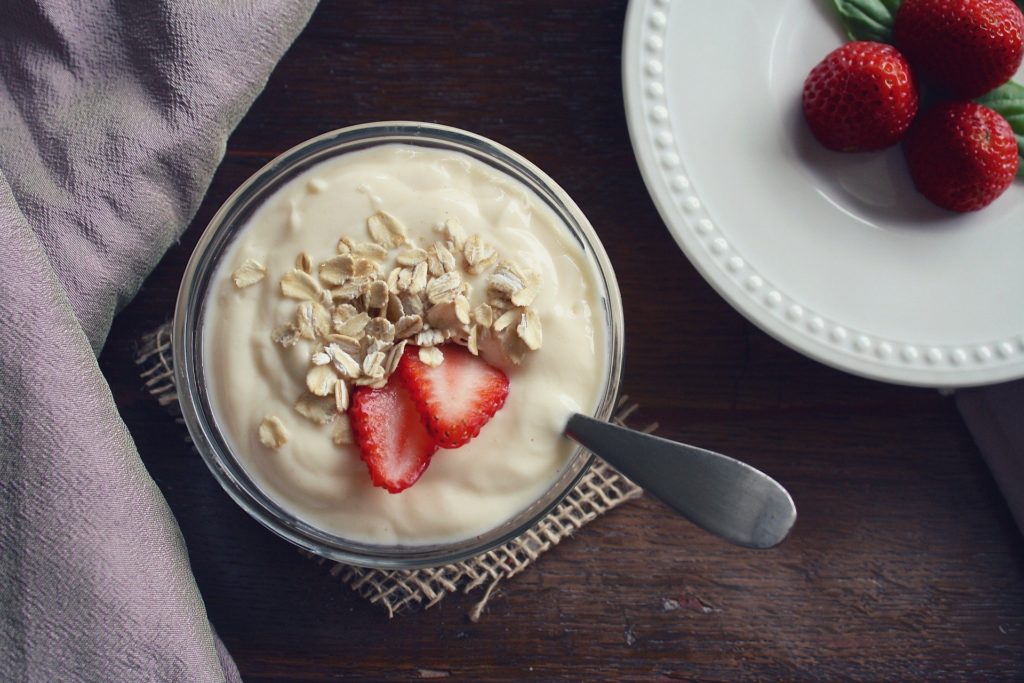There’s something about dairy…
When we think about the health benefits of foods, it’s usually based around individual nutrients: I should eat more vegies for fibre. I need dairy to get calcium for stronger bones. I should top up with a protein shake after a workout. But new research is suggesting that when it comes to eating well, it’s not single nutrients we should be focusing on. After all, you don’t sit down to a bowl of vitamin B or a plateful of potassium. Instead, it’s the unique combination of nutrients found in foods that can have a positive impact on health.
In nutrition science circles, there’s a growing recognition of what’s referred to as the “food matrix effect”. Foods are made up of nutrients and components that are housed in complex physical structures, or matrices. It’s how these all interact that can benefit us.
“In the past, and this is how I trained in nutrition science, we were very nutrient-focused,” says nutrition scientist and accredited dietitian Dr Tim Crowe. “But over the last few years, we’re seeing that food is much more than the sum of its parts. You can see a whole lot of additional health benefits from a food as a whole rather than just individual nutrients.”

The dairy matrix
One of the most studied examples of the food matrix effect is the dairy matrix. While the full potential of the food matrix is yet to be fully understood, there’s evidence to show that the dairy food matrix could help to prevent some chronic diseases and support gut health.
“Many years ago, we were focused on having less saturated fat because of heart disease,” Dr Crowe says. “So, dairy was seen as one of those foods to have less of. But the research that’s been coming in over the last decade shows that dairy foods are actually linked with either no change in risk or a lower risk of things like heart disease and type 2 diabetes.”

The full package
Most people know that milk, cheese and yoghurt are an excellent source of calcium. However, dairy naturally contains a whole suite of nutrients, including B vitamins, high-quality protein, iodine, magnesium, potassium, carbs and fatty acids. It’s the unique package of these nutrients in dairy that produces the broad range of health benefits.
“There’s a very complex thing going on in dairy,” Dr Crowe says. “It’s called the milk fat globule matrix. This means the fats in dairy foods forms a ball, or a globule. The outside of that little ball contains lipids that can benefit brain function, cholesterol synthesis and gut activity. All because of the structure of this dairy matrix.”
Dairy is also high in calcium. This has been linked with lowering cholesterol, because calcium can help to stop your body from absorbing cholesterol.
“The calcium actually binds with cholesterol in your in your gut,” says Dr Crowe. “This may help you stop absorbing some of it. It may even explain why calcium in dairy is linked to a lower risk of colorectal cancer, because you’re actually binding some of these cholesterol precursors, and you excrete them from your gut rather than absorbing them.”

Say cheese
In what’s probably the best news of all, cheese also gets a tick of approval. This is thanks to the dairy matrix effect (sadly, cream and butter don’t get a leave pass). Although it’s a higher-fat food, research has linked cheese with lower rates of metabolic disease. Last year, even the Heart Foundation changed its advice. It removed the restriction on eating full-fat milk, cheese and yogurt for Australians without high cholesterol or heart disease.
“They changed their advice from no longer focusing on reduced fat back to food in its more natural state,” Dr Crowe says. “With this change in health advice, you can enjoy cheese. You can enjoy yoghurt. You can enjoy a full fat milk as part of your diet.”

Forget nutrients, think food
When communicating messages about nutrition to the public, Dr Crowe says he now rarely talks about nutrients. Instead, he focuses on dietary patterns or dietary themes.
“The best dietary pattern that we know of is the Mediterranean diet,” he says, “This is not a food or a nutrient. It’s a packet, a way of eating. When you look at dietary patterns that generally have lots of plant-based foods and minimally processed foods and contain some animal foods? They’re linked with a whole host of health benefits.
“You can get there without talking about nutrients. Accumulating research is showing that if you get the foods right, the nutrients take care of themselves.”









